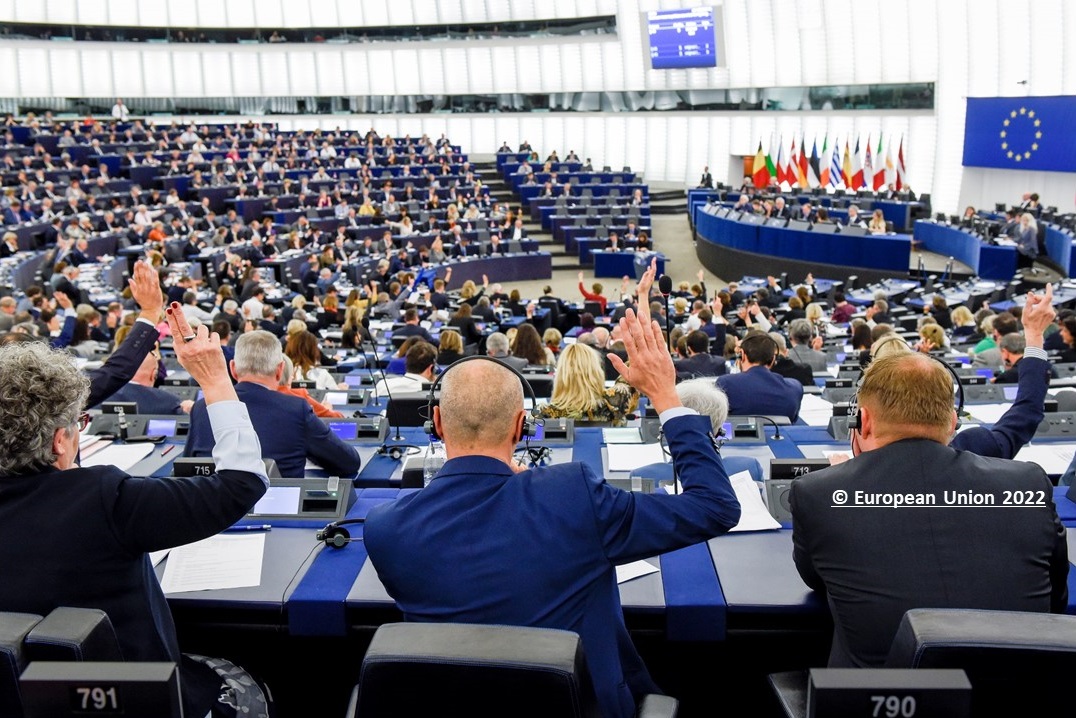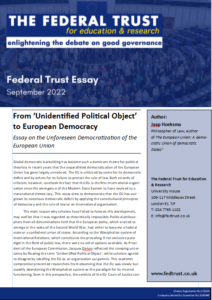From ‘Unidentified Political Object’ to European Democracy
Essay on the Unforeseen Democratization of the European Union
A Federal Trust Essay
by Jaap Hoeksma
September 2022
This essay aims to draw attention to the far-reaching implications of the recent jurisprudence of the EU Court of Justice (ECJ) concerning the democratic identity of the European Union. In the highly anticipated verdicts about the conditionality mechanism of 16 February 2022 the ECJ has found that the values of article 2 TEU contain the common constitutional norms of both the Member States and the Union. The Court underlined that the Member States have first agreed upon their common values among themselves and have subsequently applied these to their Union. Conceptually, these verdicts imply that the EU has abandoned the Westphalian system of International Relations.
This conclusion may well be as consequential for the study of humanities as the replacement of the Ptolemaic system by Galilei’s theories has been for science. Lawyers, political theorists, students of international relations and global governance as well as economists, historians and philosophers are all confronted in their respective domains with the premises and limitations of the template. The Westphalian model emerged during the Early Modern Era and became so dominant that Jean Jacques Rousseau postulated that it would forever form the cornerstone of our system of international relations. In this template, constitutional values can only thrive within the borders of a sovereign state, whereas the relations between states belong to the realm of diplomacy. Hence, the construction of the EU as a union of states and citizens contradicted the Westphalian principles to such an extent that Commission President Jacques Delors described the Union at the time of its foundation as an Unidentified Political Object.
As the EU has evolved in the subsequent years to a European democracy, the Westphalian paradigm has become obsolete for the interpretation of the Union. In view of the fact that this departure from the traditional pattern of international organisation has been corroborated by a court, it is incumbent on constitutional lawyers to inform academic researchers from other disciplines about this revolutionary breakthrough. In addition, this essay proposes to substitute the European model of Transnational Governance for the outdated template. In the run-up to the new EU Convention, which EC President Von der Leyen has announced in her State of the Union speech, it calls for interdisciplinary cooperation in the exploration of the terra incognita beyond the Westphalian system.








Leave A Comment